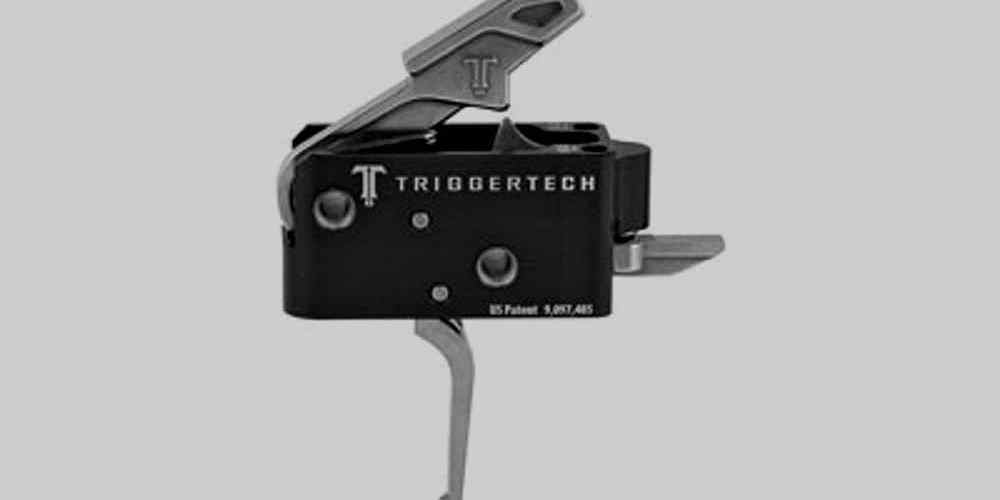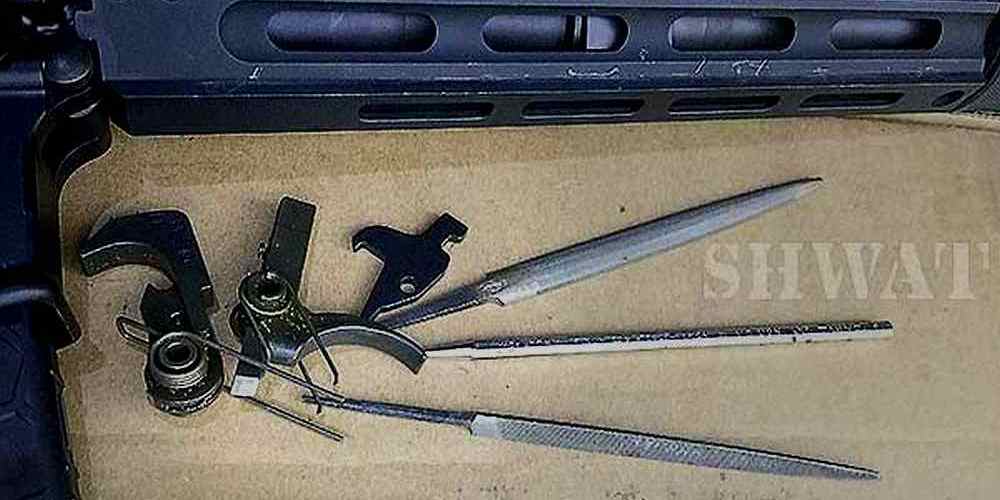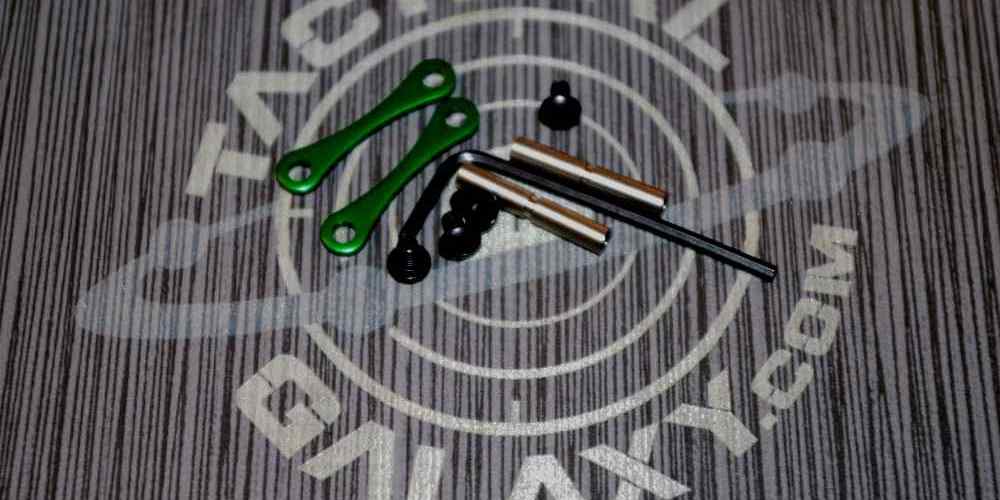Unleash your potential with The Psychological Edge: How Trigger Feel Affects Shooter Confidence.
The Impact of Trigger Feel on Shooter Confidence
Trigger feel is a crucial aspect of shooting that often goes overlooked. Many shooters focus on their grip, stance, and sight alignment, but the trigger is what ultimately determines when the shot will break. The way a trigger feels can have a significant impact on a shooter’s confidence and performance.
When a shooter pulls the trigger, they should feel a smooth, consistent pull that allows them to maintain control over the shot. A trigger that is too heavy or too light can throw off a shooter’s timing and accuracy. A heavy trigger can cause the shooter to jerk the trigger, leading to a pulled shot. On the other hand, a light trigger can cause the shooter to anticipate the shot, leading to flinching or pushing the shot off target.
The ideal trigger feel is one that is crisp and clean, with a consistent break that surprises the shooter. This type of trigger allows the shooter to focus on their sight alignment and follow-through without worrying about when the shot will break. A good trigger feel can give a shooter the confidence they need to make precise shots under pressure.
One way to improve trigger feel is to have a gunsmith adjust the trigger pull weight and reset. A gunsmith can lighten the trigger pull and adjust the reset to make it more consistent and predictable. This can help a shooter develop a more consistent trigger pull and improve their accuracy.
Another way to improve trigger feel is to practice dry firing. Dry firing is the act of pulling the trigger on an unloaded gun to practice trigger control and sight alignment. By practicing dry firing regularly, a shooter can develop a smooth, consistent trigger pull that will translate to better performance on the range.
It’s important for shooters to pay attention to how their trigger feels and make adjustments as needed. If a shooter notices that their trigger feels gritty or inconsistent, they should have it checked by a gunsmith. A gunsmith can clean and lubricate the trigger mechanism to improve its feel and performance.
In conclusion, trigger feel plays a crucial role in a shooter’s confidence and performance. A smooth, consistent trigger pull can give a shooter the confidence they need to make precise shots under pressure. By paying attention to how their trigger feels and making adjustments as needed, shooters can improve their trigger control and accuracy. Whether it’s through working with a gunsmith or practicing dry firing, shooters can take steps to improve their trigger feel and gain a psychological edge on the range.
Understanding the Psychological Aspect of Shooting
Shooting sports require a unique blend of physical skill and mental focus. While many athletes spend hours honing their technique and physical abilities, the psychological aspect of shooting is often overlooked. One key psychological factor that can greatly impact a shooter’s confidence and performance is trigger feel.

Trigger feel refers to the sensation a shooter experiences when pulling the trigger of a firearm. It encompasses factors such as the weight of the trigger pull, the smoothness of the trigger action, and the overall feel of the trigger mechanism. For many shooters, trigger feel can have a significant impact on their confidence and accuracy.
A heavy or gritty trigger can make it difficult for a shooter to maintain a steady aim and squeeze the trigger smoothly. This can lead to jerking or flinching, which can cause the shot to go off target. On the other hand, a light and crisp trigger can help a shooter maintain better control and consistency in their shooting.
The importance of trigger feel in shooting sports is well recognized by top athletes and coaches. Many competitive shooters spend time and effort fine-tuning their trigger mechanisms to achieve the perfect feel for their individual preferences. This can involve adjusting the weight of the trigger pull, polishing the trigger components for a smoother action, or even customizing the trigger shape and design.
In addition to the physical aspects of trigger feel, there is also a psychological component at play. The sensation of pulling the trigger can evoke different emotions and responses in shooters. For some, a heavy trigger may create a sense of tension and anxiety, leading to a lack of confidence in their shooting abilities. On the other hand, a light and smooth trigger can instill a sense of control and confidence, helping the shooter to focus on their technique and aim.
Understanding and managing trigger feel is essential for shooters looking to improve their performance. By paying attention to how the trigger feels in their hand and making adjustments as needed, shooters can optimize their shooting experience and enhance their confidence on the range or in competition.
One effective way to improve trigger feel is through dry fire practice. Dry firing involves practicing shooting without live ammunition, allowing shooters to focus on their trigger control and technique. By repeatedly pulling the trigger and paying attention to how it feels, shooters can develop a better understanding of their trigger mechanism and make adjustments as needed.
Another important aspect of trigger feel is consistency. Shooters should strive to maintain a consistent trigger pull each time they shoot, regardless of the circumstances. This can help build muscle memory and improve overall shooting performance.
In conclusion, trigger feel plays a crucial role in a shooter’s confidence and performance. By understanding the physical and psychological aspects of trigger feel, shooters can make adjustments to optimize their shooting experience and enhance their skills. Whether you are a competitive shooter or a recreational enthusiast, paying attention to trigger feel can help take your shooting to the next level.
Techniques to Improve Trigger Feel for Better Performance
Trigger feel is a crucial aspect of shooting performance that often goes overlooked. The way a shooter interacts with the trigger can have a significant impact on their accuracy and overall confidence. Understanding how trigger feel affects shooter performance is essential for those looking to improve their skills on the range.
When we talk about trigger feel, we are referring to the sensation a shooter experiences when pulling the trigger. This sensation can vary depending on the type of firearm being used, as well as the individual shooter’s preferences. A smooth, consistent trigger pull is generally preferred, as it allows for greater control and accuracy when firing a shot.
One of the key ways in which trigger feel affects shooter confidence is through the psychological aspect of shooting. A shooter who is comfortable with the trigger feel of their firearm is more likely to feel confident in their abilities and make accurate shots. On the other hand, a shooter who is unsure or uncomfortable with their trigger feel may experience hesitation and a lack of confidence, leading to missed shots and frustration.
To improve trigger feel and boost shooter confidence, there are several techniques that can be employed. One of the most effective ways to enhance trigger feel is through dry fire practice. By repeatedly pulling the trigger on an unloaded firearm, shooters can become more familiar with the feel of the trigger and develop a smoother, more consistent pull. This can help to build muscle memory and improve overall shooting performance.
Another technique for improving trigger feel is to adjust the trigger pull weight on a firearm. Many firearms allow for the adjustment of trigger pull weight, which can help shooters find the right balance between too light and too heavy of a trigger pull. A trigger that is too light may lead to accidental discharges, while a trigger that is too heavy can cause fatigue and affect accuracy. Finding the optimal trigger pull weight for a shooter’s preferences can greatly improve trigger feel and confidence.
In addition to dry fire practice and trigger pull weight adjustments, shooters can also benefit from using aftermarket trigger components to enhance trigger feel. Upgrading to a high-quality trigger can provide a smoother, more consistent pull that is tailored to the shooter’s preferences. This can help to reduce trigger creep and overtravel, leading to improved accuracy and confidence on the range.
Overall, understanding how trigger feel affects shooter confidence is essential for those looking to improve their shooting performance. By focusing on developing a smooth, consistent trigger pull through techniques such as dry fire practice, trigger pull weight adjustments, and aftermarket trigger upgrades, shooters can enhance their skills and boost their confidence on the range. With practice and dedication, shooters can achieve a psychological edge that will help them make accurate shots and reach their full potential as marksmen.
Overcoming Mental Blocks in Shooting Sports
Shooting sports require a unique blend of physical skill and mental toughness. While many athletes focus on honing their technique and physical conditioning, the psychological aspect of shooting can often be overlooked. One key psychological factor that can greatly impact a shooter’s performance is trigger feel.
Trigger feel refers to the sensation a shooter experiences when pulling the trigger of their firearm. This sensation can vary depending on the type of firearm being used, the trigger pull weight, and the shooter’s individual preferences. For some shooters, a crisp and clean trigger break can instill confidence and improve accuracy. For others, a mushy or gritty trigger can create doubt and lead to inconsistent performance.
Understanding how trigger feel affects shooter confidence is crucial for overcoming mental blocks in shooting sports. When a shooter has confidence in their equipment and their ability to consistently deliver accurate shots, they are more likely to perform at their best. On the other hand, a shooter who is unsure of their trigger feel may struggle to maintain focus and control under pressure.
One way to improve trigger feel is through proper maintenance and tuning of the firearm. Regular cleaning and lubrication can help ensure a smooth and consistent trigger pull. Additionally, shooters can experiment with different trigger weights and styles to find the one that best suits their preferences. By taking the time to fine-tune their equipment, shooters can build confidence in their trigger feel and improve their overall performance.
Another important aspect of trigger feel is the mental connection between the shooter and the firearm. Developing a consistent and repeatable trigger pull can help shooters establish a rhythm and flow in their shooting technique. By focusing on the sensation of the trigger break and learning to anticipate the shot, shooters can improve their timing and accuracy.
In addition to physical practice, mental rehearsal can also play a key role in improving trigger feel. Visualization techniques can help shooters mentally prepare for the sensation of pulling the trigger and build confidence in their ability to execute a perfect shot. By mentally rehearsing the process of shooting, shooters can develop a sense of familiarity and comfort with their trigger feel, leading to improved performance on the range or in competition.
Overcoming mental blocks in shooting sports requires a holistic approach that addresses both the physical and psychological aspects of the sport. By understanding how trigger feel affects shooter confidence and taking steps to improve it, shooters can enhance their performance and achieve greater success. Whether through equipment maintenance, mental rehearsal, or a combination of both, shooters can develop the psychological edge needed to excel in shooting sports. By mastering trigger feel, shooters can unlock their full potential and reach new heights in their shooting abilities.
The Role of Confidence in Achieving Success in Shooting
Confidence plays a crucial role in the success of a shooter. It can make the difference between hitting the target and missing it by a mile. But what exactly is confidence, and how does it impact a shooter’s performance? One key factor that influences confidence is trigger feel.
Trigger feel refers to the sensation a shooter experiences when pulling the trigger of a firearm. It encompasses the weight, smoothness, and predictability of the trigger pull. A good trigger feel can instill confidence in a shooter, while a poor trigger feel can lead to hesitation and uncertainty.
When a shooter has confidence in their trigger feel, they are more likely to execute a smooth and controlled trigger pull. This is essential for accuracy, as any jerky or inconsistent movements can throw off the shot. A smooth trigger pull allows the shooter to maintain proper sight alignment and follow-through, resulting in a more precise shot placement.
On the other hand, a poor trigger feel can cause a shooter to second-guess themselves. They may hesitate to pull the trigger, fearing that it will be too heavy or unpredictable. This hesitation can lead to missed shots and decreased confidence in their abilities.
To improve trigger feel, shooters can make adjustments to their firearm or invest in a higher-quality trigger. Many shooters also practice dry firing to get a better sense of their trigger feel and develop muscle memory for a smooth pull.
In addition to physical adjustments, shooters can also work on their mental game to build confidence in their trigger feel. Visualization techniques can help shooters imagine themselves executing a perfect trigger pull, reinforcing positive habits and boosting confidence. Positive self-talk and affirmations can also help shooters stay focused and confident during a competition.
Ultimately, confidence in trigger feel is about trust. A shooter must trust that their trigger will perform consistently and predictably every time they pull it. This trust allows the shooter to focus on their technique and shot placement, rather than worrying about the mechanics of the trigger.
In competitive shooting, confidence in trigger feel can give a shooter the edge they need to come out on top. It can help them stay calm under pressure, make quick and accurate shots, and ultimately achieve their goals. By understanding the importance of trigger feel and taking steps to improve it, shooters can boost their confidence and increase their chances of success.
In conclusion, trigger feel plays a significant role in a shooter’s confidence and performance. A good trigger feel can instill trust and consistency, leading to more accurate shots and increased confidence. By making physical adjustments, practicing mental techniques, and building trust in their equipment, shooters can develop a strong sense of confidence in their trigger feel and improve their overall performance.






